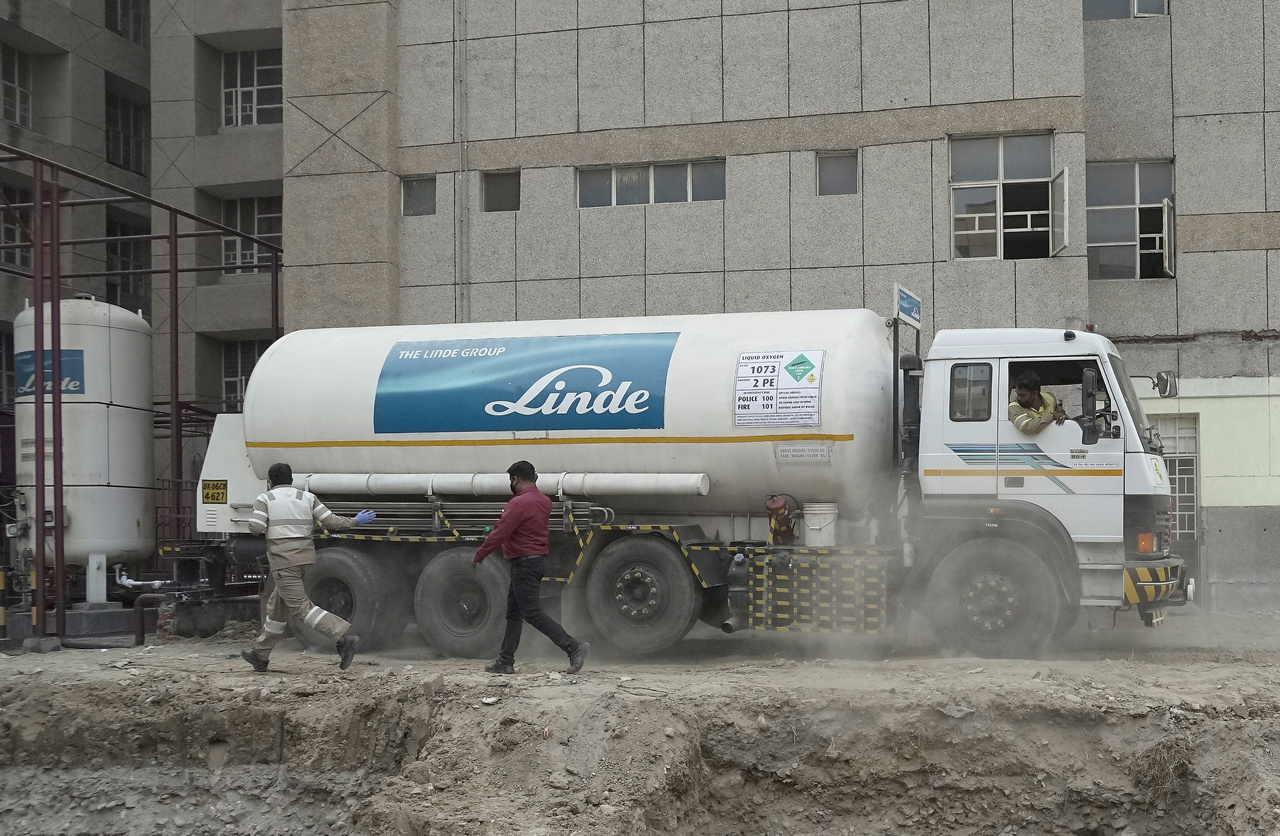With the pandemic now in its ninth month, the world’s most frontrunner vaccine candidates need non-stop sterile refrigeration to ensure vaccines remain potent and safe.
The safe delivery of vaccines to the people is a massive challenge, and India will need to significantly ramp up its cold chain facilities, as India moves into the next stage of vaccine distribution.
What is a cold chain?
According to WHO, ‘the role of the cold chain is to maintain the potency of vaccines from the point of manufacture to the point of use.’
From reaching the factory to the syringe, making the task of securing “last mile connectivity” and ensuring that nothing goes wrong before the shot is administered is the need of the hour.
Cold storage is the next big challenge
The vaccine cold chain hurdle is just the latest disparity of the pandemic weighted against many countries. Investment in the infrastructure and cooling technology lags behind the high-speed leap that vaccine development has taken this year.
The initial vaccine candidates from Pfizer and Moderna are both mRNA vaccines and mRNA is naturally an unstable molecule that is prone to degradation when exposed to temperature fluctuations.
The Associated Press estimates vaccine storage issues could leave 3 billion people in developing countries without access to a coronavirus vaccine.
Earlier in September, Adar Poonawalla, Chief Executive Officer of Serum Institute of India (SII), which is producing the potential coronavirus vaccine developed by Oxford University, asked on Twitter if the government will have Rs 80,000 crore available to buy and distribute the vaccine.
Quick question; will the government of India have 80,000 crores available, over the next one year? Because that's what @MoHFW_INDIA needs, to buy and distribute the vaccine to everyone in India. This is the next concerning challenge we need to tackle. @PMOIndia
— Adar Poonawalla (@adarpoonawalla) September 26, 2020
Maintaining the cold chain for coronavirus vaccines won’t be easy even in the richest of countries. Medical freezers that go down to minus 70 degrees Celsius are rare even in U.S. and European hospitals.
Most, if not all the current Covid-19 vaccine frontrunners require extremely stringent cold chains, making them immensely challenging for India to implement,” said Satyajit Rath from New Delhi’s National Institute of Immunology (NII).
Pawanexh Kohli, the founding CEO of India’s National Centre for Cold-Chain Development (NCCD), agrees that protocols will require Covid-19 vaccines to be kept between 2 and 8 degrees Celsius., while in transport and storage until delivery.
What are the issues in storing, distributing Covid-19 vaccines?
Storing, distributing Covid-19 vaccines requires advance planning to keep vaccines at stable temperatures from the time they are made until they are given to patients.
Noting that cold storage protocols are well established in India, Kohli said the public health network is limited in capacity.
“Luckily, the food cold chain has synergistic use for this purpose and should assist in this battle. Existing cold chain enterprises may need to allocate specific resources in their network,” noted Kohli.
Kohli also believes that India must restructure with the purpose to start and finish the immunization program within a short time period to be effective.
“Even if the vaccine is ready, the program should not be commenced until the last mile for administering the vaccine is prepared,” he added.
Dr. Aquinas Edassery, who runs two clinics in one of India’s poorest and least developed regions, said patients here walk for hours to receive health care. The trip on a single road that over steep hills with wind speed 86 kilometers at a time will pose an insurmountable barrier for many residents of the eastern district of Rayagada, Edassery said.
WHO estimates that as much as half of vaccines globally are lost to wastage, sometimes due to heat exposure or vials breaking while in transit. With coronavirus vaccines, which will be one of the world’s most sought-after products, theft is also a danger.
Way Ahead
“India is already working on putting a well-established vaccine delivery system in place. India’s vaccine manufacturing and delivery capacity will help all of mankind in fighting this crisis,” PM Modi said at the program, which brings together scientists and innovators to deliberate on solving key global challenges.
We are committed to ensuring speedy access to the vaccine. For that, advanced planning is underway in subjects including:
Cold storage chains.
Distribution networks.
Monitoring mechanism.
Advance assessments.
— Narendra Modi (@narendramodi) October 17, 2020
“The Prime Minister stressed that every step in the logistics, delivery, and administration should be put in place rigorously. It must include advanced planning of cold storage chains, distribution network, monitoring mechanism, advance assessment, and preparation of ancillary equipment required, such as vials, syringes,” a government statement said.











